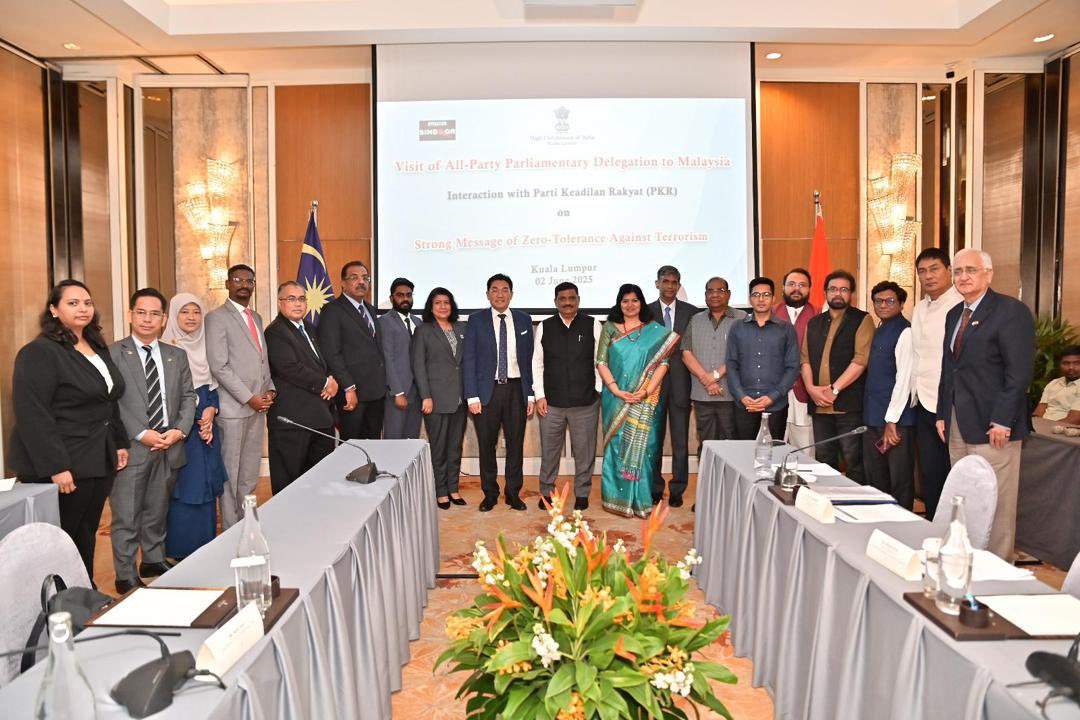‘Water and Blood Cannot Flow Together’, India Declares in Kuala Lumpur
As part of its sweeping 33-nation diplomatic campaign following the April 22 Pahalgam terror attack, an Indian all-party parliamentary delegation visiting Malaysia reiterated the country's uncompromising position on terrorism, declaring that “water and blood cannot flow together.”
Led by JD(U) MP Sanjay Kumar Jha, the delegation met with lawmakers from Malaysia’s Democratic Action Party (DAP) and Parti Keadilan Rakyat, including Deputy Minister YB M. Kula Segaran, in Kuala Lumpur. The discussions focused on India’s response to cross-border terrorism, with specific reference to Operation Sindoor, India’s precision strikes on terrorist infrastructure in Pakistan and Pakistan-occupied Kashmir earlier this month.
According to the Indian High Commission in Malaysia, the delegation conveyed India’s policy of zero tolerance toward terrorism, its evolving security posture, and the wider context of India's foreign policy shift. “Water and blood cannot flow together” was a phrase repeatedly underscored during the meetings—signalling that India is prepared to leverage all tools, including strategic and ecological, in its fight against state-sponsored terrorism.
The Kuala Lumpur leg is part of India’s larger post-Pahalgam strategy—a multi-layered diplomatic offensive involving MPs, diplomats, and former ambassadors fanned across major capitals to unify international opinion against terrorism and its enablers. Delegations are engaging with legislators, civil society groups, think tanks, and diaspora communities to present India’s moral and strategic case in favour of global clarity on terrorism.
Malaysia, as a key ASEAN partner with a significant Indian diaspora, holds strategic value in this outreach. India’s message, reiterated in Kuala Lumpur, echoes what has been conveyed in Berlin, Tokyo, New York, and other global capitals: there can be no space for ambiguity when it comes to terrorism, and neutrality only emboldens its sponsors.
The campaign also reflects a broader transformation in Indian diplomacy—from reactive protest to proactive agenda-setting. With strong parliamentary representation, including cross-party MPs, India is projecting both domestic unity and global urgency.
As Operation Sindoor redefined India's military deterrence, its diplomatic equivalent is unfolding across continents—including in Malaysia, where the narrative of peace, resilience, and firm red lines was delivered with clarity and consensus.

